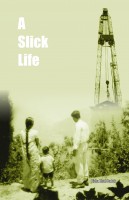Ruskin Bond isn’t the only one who has made ‘A Town called
Dehra’ his home. His book by the same name apart from reliving his childhood
days growing in this sleepy town is also an endorsement of the fact that there
is something uniquely special about it. What? There’s the ubiquitous greenery,
simple hill folk that flock it in search of jobs, a sort of unhurried pace of
life; well! Sort of! And people still find time while on walks or scooters to
say hello to that acquaintance you spotted on the road. Do people still want
this kind of life? The answer is yes they do. But without losing out on the
speed they’ve gathered in the fast lane. So we find many a city slickers homing
in into the town for rest and recoup because the place gives a deep sense of
contentment as well as the spiritual connect that is such an integral part of
it.
Dehra Dun, the capital of the state of Uttarakhand (India)
has always evinced much interest of people even since the olden times as the
yellowed pages of history would tell of its renown as the place of ‘green
hedges and grey heads’. Lush green foliage dotted the landscape of the valley
and made it one of the greenest in the country. The grey heads- symbolized the
retired senior civil and defence officials who chose it as their last refuge
because of its salubrious climate and peaceful ambience.
Migration of people from various part of India had begun
more than 200 years ago and gave it the cosmopolitan character that it bears
now. Apart from the hill folks like the Garhwalis and Gorkhas, many disciples
of Guru Ram Rai settled here. During the early 1950s, the setting up of the Oil
& Natural Gas Directorate (now Corporation) brought in many Bengali
families who took jobs in ONGC, Ordinance factory and the Survey of India. Needless
to say, all who came to know the place and it’s people, embraced the place as
their own and settled down here.
The times then saw a
wonderful camaraderie, cultural and reassertion of Indian values in the society
what with the call for freedom struggle gaining strength. Gandhiji had unified
India like none other could have and the country and its people were nervously
excited to see how the development of the country would unfold post
independence. The many sacrifices, turmoil, thoughts, mental state of the
common people during the struggle are something nobody knows about. We have been
inundated with many books eulogising the contributions of political stalwarts
time and again but nothing on the contributions of the common man.
A Slick Life is a story of a common man from Dehra Dun who joined ONGC as a driller. His
life exemplifies the joys, laughter, difficulties, the wars that shook the
country, the Dehra Dun of yore and most importantly how the oil industry took
firm roots in India and the immense contribution of ONGC in it. The story is a
never before explored subject of oil well drilling and an endearing look at the
past at how people used to be once upon a time! Perhaps, you’ll recall things
you’ve probably forgotten by now.
It is a must read for every Indian.
PS: A Slick Life is available on 50% OFF for the month of JUNE so HURRY....n grab your copy today.
For PAPERBACK of the book contact: authoricha@gmail.com
Tweet
PS: A Slick Life is available on 50% OFF for the month of JUNE so HURRY....n grab your copy today.
For PAPERBACK of the book contact: authoricha@gmail.com
Tweet


Sounds good, will add it to my bottomless to-read pile.
ReplyDeleteSounds good, will add it to my bottomless to-read pile.
ReplyDeleteThanks. Its a chronicle of a place and people post independence to late 80s. It details India through an ordinary man's point of view and his expectations from the native government after the freedom was regained.
DeleteThanks. Its a chronicle of a place and people post independence to late 80s. It details India through an ordinary man's point of view and his expectations from the native government after the freedom was regained.
DeleteThanks. Its a chronicle of a place and people post independence to late 80s. It details India through an ordinary man's point of view and his expectations from the native government after the freedom was regained.
Delete